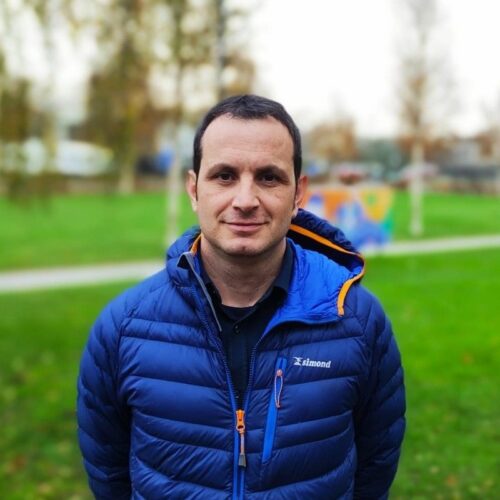
- This event has passed.
17th May: Hydro-morpho-eco processes and interactions in highly pressured coastal bays
May 17, 2023 @ 1:00 pm - 2:00 pm

Hydro-morpho-eco processes and interactions in highly pressured coastal bays: the cases of Fangar and Alfacs bays in Ebro delta (NW Mediterranean Sea)
*Note different venue than normal*
Wednesday 17th May, 1-2pm, Cottrell LTB4 and streamed on Teams (contact the seminar organiser for the Teams link).
This seminar is open to all staff, students and affiliates of the University of Stirling. The seminar is hosted by Biological and Environmental Sciences (BES).
Who this may appeal to: The presentation addresses how to face environmental problems in coastal bays, with different social and economic interests, and using observations, numerical modelling and remote sensing. In this sense, the potential groups of interest include academics from the Earth and Planetary Observation, Healthy Environments and also Environmental Biogeochemistry research groups.
Abstract: Bays and estuarine areas are among the most productive but also vulnerable coastal areas from an ecological and socio-economic standpoint, as recognized in recent literature. These ecotones are increasingly threatened, particularly in the past half century, by anthropogenic pressures, such as aquaculture and fishing, tourism and leisure, coastal urban environments and the associated large-scale discharge of pollutants. These pressures also include the transformation of coastal morphology due to infrastructures and the gradual degradation of the water quality and natural habitats. This talk will analyse the relationships between hydrodynamics (and their forcing) and biological variables in Ebro Delta bays (NW Mediterranean Sea) based on in-situ observations, numerical models and satellite data. The bays of Alfacs and Fangar, located in south and north Ebro hemi-delta respectively, represent environmental vulnerability hotspots, with a highly pressured anthropogenic coastal area where several activities interact. In this sense, an improved knowledge on hydro-morpho-eco processes and interactions can provide the basis to develop Nature-based Solutions that effectively address the degradation and/or vulnerability of such coastal environments, contributing to bay sustainability.
Bio: Manel Grifoll received his PhD in Civil Engineering at the Universitat Politècnica de Catalunya (UPC-BarcelonaTech) in 2009. He was a pre-doctoral fellowship at Atzti-Tecnalia (Basque Conutry) and has been involved with different research and university centers such as US Geological Survey (Woods Hole, USA), Danish Hydraulic Institute (Lyngby, Denmark), Molde University College (Norway), Universidade Eduardo Mondlane (Maputo, Mozambique) and Universidade do Save (Maxixe, Mozambique).
His research area investigates physical processes in coastal areas related to waves, currents and sediment transport. Moreover, he participates in the development of operational coastal models for different end-users as support tools for coastal and harbour managers. His research encompass in-situ observations, remote sensing and numerical models in coastal oceanography. Some of his current research topics are: wave-current-atmospheric interaction in wind-jets regions, stratification and mixing processes in estuaries, river borne fine sediment dispersal and hydrodynamic description of inner-shelf processes. He combines his research and teaching activity at the Technical University of Catalonia with projects in developing countries.
Currently Manel is on a research leave working as visitor researcher at the University of Dundee in collaboration with the Prof. Alan Cuthberston.
ORCID: 0000-0003-4260-6732
Contact Information:
Personal Website
Email
Twitter